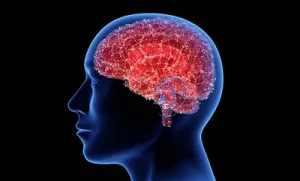Introduction In the realm of cognitive enhancement, innovative technologies have emerged as promising tools to unlock the full potential of our brains. One such technology gaining traction is neurofeedback training using brain-computer interfaces (BCIs). By harnessing the power of BCIs, researchers and practitioners are exploring how real-time monitoring and modulation of brain activity can enhance
Introduction
In the realm of cognitive enhancement, innovative technologies have emerged as promising tools to unlock the full potential of our brains. One such technology gaining traction is neurofeedback training using brain-computer interfaces (BCIs). By harnessing the power of BCIs, researchers and practitioners are exploring how real-time monitoring and modulation of brain activity can enhance cognitive abilities and foster improved learning.
Understanding Neurofeedback and BCIs
Neurofeedback involves presenting individuals with real-time information about their brain activity, typically through visual or auditory cues. BCIs act as the bridge between the brain and external devices, enabling the recording and interpretation of neural signals. These signals are then translated into actionable feedback that users can perceive and, with practice, learn to influence.
Enhancing Cognitive Abilities
The potential applications of neurofeedback for cognitive enhancement are vast. For instance, studies have shown its efficacy in improving attention and focus. By training individuals to modulate their brain activity patterns associated with attention, they can develop better concentration skills, which can prove invaluable in various settings, from academic environments to professional endeavors. Moreover, neurofeedback has exhibited promise in enhancing memory functions. Through targeted training, individuals can learn to regulate neural patterns linked to memory encoding and retrieval, potentially aiding in information retention and recall.

Image By:https://www.madinamerica.com
Optimizing Learning Processes
In education, neurofeedback via BCIs holds significant promise. By providing real-time insights into brain activity during learning tasks, educators can tailor instructional approaches to suit individual learning styles. This personalized feedback loop can facilitate more effective learning experiences, catering to each student’s cognitive strengths and weaknesses. Additionally, neurofeedback can assist in addressing learning disorders. By guiding individuals to regulate specific brain activity associated with conditions like ADHD or dyslexia, it may offer a non-invasive and potentially beneficial approach to managing these challenges.
Challenges and Future Directions
Despite its potential, neurofeedback via BCIs faces several challenges. The technology’s accessibility and affordability remain barriers to widespread adoption. Moreover, refining the precision and reliability of neurofeedback systems is an ongoing area of research. Looking ahead, advancements in machine learning and AI algorithms hold promise for enhancing the accuracy of interpreting neural signals. This could lead to more sophisticated and adaptive neurofeedback protocols tailored to individual brain dynamics. Furthermore, ethical considerations regarding cognitive enhancement via neurofeedback necessitate careful exploration. Questions regarding consent, privacy, and the ethical implications of modifying cognitive functions warrant thorough examination to ensure responsible and equitable use of this technology.

Image By:https://www.madinamerica.com
Conclusion
Neurofeedback training through BCIs represents a frontier in cognitive enhancement and learning optimization. Its potential to empower individuals by tapping into their brain’s innate capabilities is both promising and exciting. As research and technological advancements continue, the prospect of leveraging neurofeedback for personalized cognitive enhancement and tailored learning experiences becomes increasingly plausible. However, it is imperative to navigate the ethical, technical, and societal implications carefully to harness its benefits responsibly. With continued innovation and ethical considerations at the forefront, neurofeedback via BCIs could reshape how we understand and augment cognitive abilities in the years to come.

















Leave a Comment
Your email address will not be published. Required fields are marked with *